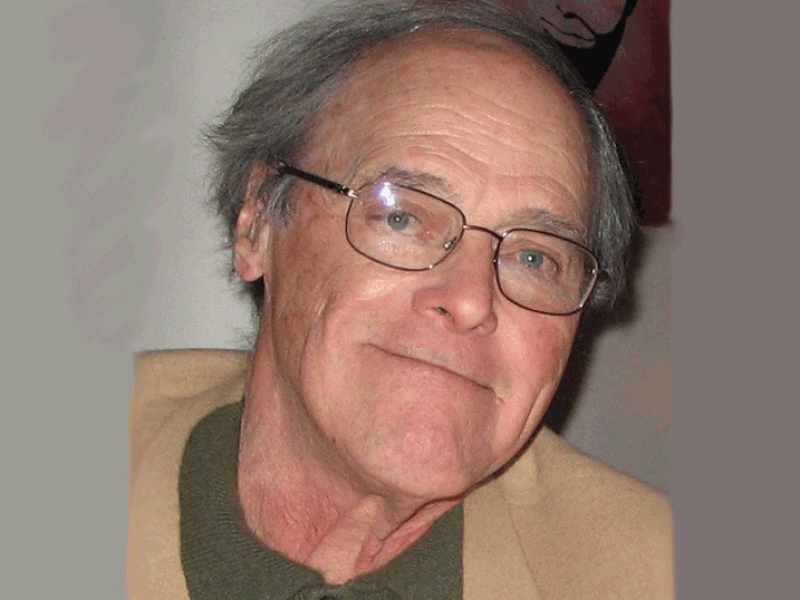The Board of Directors of the Roper Center for Public Opinion Research is pleased to announce that James A Davis, Principal Investigator, emeritus, of the National Opinion Research Center’s General Social Survey and retired Professor of Sociology at Harvard University, is the recipient of the 2010 Warren J. Mitofsky Award for Excellence in Public Opinion Research. The award recognizes Davis’s visionary role in the creation of the General Social Survey as well as his path-breaking research into social and generational change in American life.
In 1971 while director of National Opinion Research Center at the University of Chicago, Davis had one of the truly “Big Ideas” in the social sciences. He proposed creating a national survey that would annually monitor social change in America and promptly deliver data to all interested researchers, regardless of scholarly standing or institutional affiliation. These surveys would be methodologically rigorous and wide-ranging. No topic of serious interest to social scientists would be off-limits: racial attitudes, inter-group relations, gender roles, happiness, misanthropy and life satisfaction would fall within its purview. The Russell Sage and National Science Foundations supported the proposal, and the General Social Survey was born in 1972 with Davis as its first Principal Investigator.
Over the next 38 years and 27 surveys Davis led the GSS to a preeminent position in the social sciences. The GSS currently is the second most frequently used source of social science data behind the U.S. Census. GSS data have fueled more than 16,000 academic articles, books and Ph.D. dissertations; an estimated 400,000 students use it annually in their classrooms. In May, the National Science Foundation named the General Social Survey along with the Panel Study of Income Dynamics and the American National Election Studies as one of 60 discoveries or advances in science or engineering that have had “a large impact or influence on every American’s life.”
Roper Center’s GSS
Codebooks over the years
The Roper Center owes Davis a particularly large debt of gratitude. The GSS consistently ranks among the top five most-requested data sets from the Roper Center archive. In addition, Davis served on the Roper Center board of directors from 1974 to 1994. His service coincided with a critical period for the Center and for polling. In 1977 the Center moved from Williams College to the University of Connecticut. At the same time, the rapid proliferation of polls in the 1980s and the transition from in-person to telephone interviewing presented new challenges to the board and led it to establish new, rigorous standards of quality for the archive.
As a sociologist Davis made his scholarly mark in the early 1970s in a series of highly quantitative series of articles, books and monographs that demonstrated the utility of logistic regression analysis in social science research, including The Goodman Log Linear System for Assessing Effects in Multivariate Contingency Tables (1972) and Hierarchical Models for Significance Tests in Multivariate Contingency Tables: An Exegesis of Goodman’s Recent Papers (1974).
His widely used textbook Elementary Survey Analysis (1971) was hailed as a model of clarity and insight, though some students grumbled that the book was anything but “elementary.” He has been a leader in studying social and generational change; his article “Did Growing Up in the 1960’s Leave a Permanent Mark on Attitudes and Values? Evidence from the GSS” (2004) explained Baby Boomers to themselves and to other generations while “Communism, Conformity, Cohorts, and Categories: American Tolerance in 1954 and 1972-73.” (1974) set the standard for the effective use of longitudinal analysis.
His accomplishments have not gone unnoticed. Davis is among the most honored social scientists of his generation. He received the Lifetime Achievement Award from the American Association for Public Opinion Research in 1992 and the Warren E. Miller Award for Meritorious Service to the Social Sciences from the Inter-University Consortium for Political and Social Research.
Davis, a gifted and inspiring lecturer, never abandoned the classroom, and generations of students at Dartmouth, Harvard and the University of Chicago are all the better for it. He received the Distinguished Contribution to Teaching Award from the American Sociological Association in 1989. Harvard University honored him with the Levinson award for outstanding teaching by a senior faculty member in 1994. Perhaps the greatest tribute to Davis as a teacher and mentor came in 2009 when Tom W. Smith, one of his pupils at Chicago and a longtime member of the Roper board, succeeded him as Principal Investigator of the General Social Survey.
In fundamental ways, Davis has dedicated his professional life to explaining America to itself. He has done so with great insight, intelligence and wit. For his many scholarly contributions to social science, and particularly for the creation of the General Social Survey, this award is given.
A reception honoring Davis was hosted by the Roper Center Board of Directors on November 11, 2010 in Washington, D.C. The 2010 Award Committee members were Michael X. Delli Carpini, Joseph Lenski, Richard Morin (chair), James Stimson and Michael Traugott.
The Warren J. Mitofsky Award for Excellence in Public Opinion Research as a tribute to Warren Mitofsky who was chairman of the Roper Center Board of Directors. The Center established a fund in his name to support the Roper Center and sponsor an annual award for outstanding work utilizing the Center’s archival holdings. Please consider contributing to this fund, the Andrew Kohut Student Fellowship Fund or the Roper Center General Fund to help ensure the continuation of the important work of the Roper Center into the future. Your generosity is appreciated.
